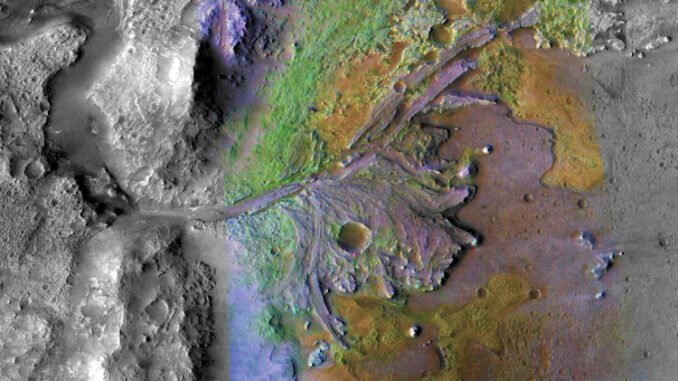
Recent evidence collected by the Perseverance rover confirmed the presence of an ancient lake on Mars. This news is building excitement among scientists.
The Perseverance rover [vehicle that lands on other planets or the Moon to collect data] was launched from Earth on July 30, 2020. After a 7-month journey, it landed on the Jezero Crater on Mars. It has been studying the crater ever since. One of Perseverance’s jobs is to look for evidence of life and collect samples that can be returned to Earth for study.
The Jerzero Crater is a 30 mile-wide crater that was formed billions of years ago by impact with an asteroid. This area of Mars interests scientists because it is very old and can tell us about the history of the planet.
From photos, scientists have observed what appears to be an ancient river delta [mass of land that forms at the mouth of a river]. This suggests that a lake once filled the crater. But to learn about the history of the crater and how that delta formed, scientists had to look below the surface.
In addition to various instruments, cameras, sample-collection equipment, and a mini helicopter, Perseverance has a ground-penetrating radarsystem. This system allows scientists to “see” below the planet’s surface. The radar found horizontal layers of lake sediments below the surface. They reveal evidence of periods of erosion, deposition, and environmental change on Mars.
The soil and rock samples collected by Perseverance will be brought back to Earth for study. Scientists are excited because they know that a lake is a great place to find life. Ancient lakes are also known for preserving fossils that could provide evidence of past life. What will scientists find in the samples?
What Do You Think? Will scientists find evidence of life in the samples?
Photo Credit: NASA/JPL-Caltech/MSSS/JHU-APL



